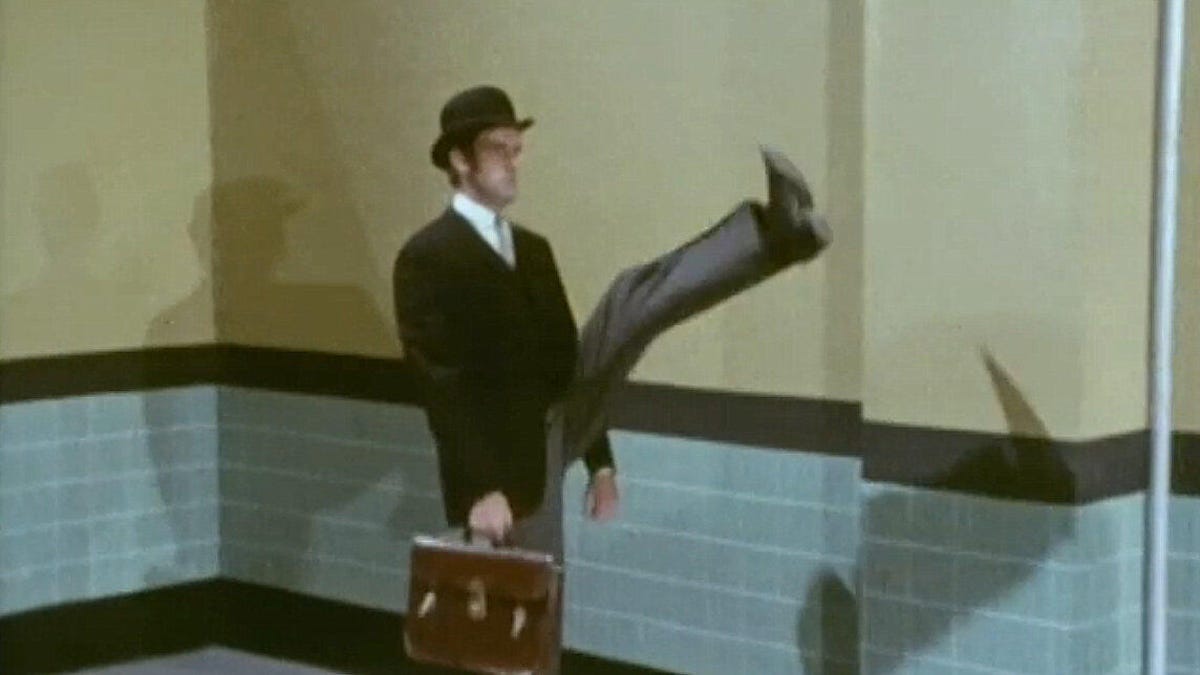Monty Python's silly walks are indeed silly, scientists determine
The team also makes a point about the burdensome peer-review process for grants.

Monty Python debuted silly walks in 1970 on Flying Circus.
The Ministry of Silly Walks set a new standard for absurdity when the comedy sketch first appeared on Monty Python's Flying Circus television show in 1970. But just exactly how silly were those walks? Extremely silly, new research suggests.
A team of scientists from Dartmouth College conducted a gait analysis on the walks performed by John Cleese (the minister) and Michael Palin (Mr. Pudey, a man applying for a grant to improve his own silly walk). The results appeared in the journal Gait & Posture.
This graphic shows two gait cycles from the minister (in red) and one from Mr. Pudey (in blue) compared to a typical human gait (in black).
"In the spirit of Monty Python's humor, based on an actual gait analysis, a Dartmouth research team finds that the minister's silly walk is 6.7 times more variable than a normal walk," the college said in a statement on Thursday. Mr. Pudey's walk was found to be 3.3 times more variable than a typical walk.
A chart released with the paper illustrates just how different the Pythons' walks are from a standard gait.
"Our analysis corroborates the minister's assessment: Mr Pudey is a promising applicant and deserving of a Research Fellowship to advance his silly walk," the paper concluded.
The researchers aren't just being silly for the sake of having a laugh. The sketch is hilarious, but it's also a commentary on the weight and wastefulness of bureaucracy. The Dartmouth team used its paper to make a point about how burdensome the grant process can be for academics in the health sciences.
The team talked about how federal grant applications in the US can require 150-page proposals and a lengthy, stringent peer review process.
"If the process was streamlined and grants were awarded more quickly, researchers could start their work earlier, accelerating the timeline for research," said study co-author Nathaniel Dominy, an anthropologist at Dartmouth. "Similarly, grant administrators would recoup time and money, which could potentially free up more money for research funding."
That sort of progress would be worth kicking up your heels for.
Update, March 14 at 10:30 a.m. PT: This story has been updated to correct to Dartmouth College.

